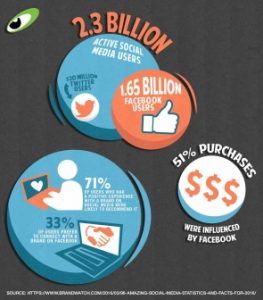By James Vincent
Times are tough, headwinds are strong, and uncertainties lie ahead. The economic climate is shifting in real time and will continue to shift in the coming weeks and months. But what hasn’t shifted—and won’t ever—is the need for innovation, and the role that intentional narrative plays in business success.

Intentional narrative is agnostic to market trends. In periods of growth, it has the power to elevate a brand: becoming a category leader or a category of one. In downward-trending market conditions, intentional narrative is the float that allows companies to weather the storm, and even stay ahead.
On this week’s Most Innovative Companies podcast, we highlight the strongest insights around narrative innovation that we’ve learned during our 12 conversations with founders and innovators—summing up what they’ve shared into 5 core themes that hold as much resonance today as they will in future times.
1. Innovation in crisis
Innovation and creativity aren’t a luxury afforded to us in good times, but a necessity, said Brian Chesky, cofounder and CEO of Airbnb. “Have you ever had those bad trade-offs where there’s no good solution? That’s when creativity is really helpful. When you have two bad options, creativity sometimes allows you to design a win-win. A third path.”
Challenging moments can also serve as the foundations for transformation. Joe Percoco, cofounder and co-CEO of fintech startup Titan, sees an opportunity in moments like these. “You actually need a disorienting event to build something transcendental,” he said. “If you abandon your customers, abandon innovating—you’re abdicating an amazing opportunity to grow.”
The ability to sense opportunity in times of difficulty is also something Danny Rimer, a partner at venture capital firm Index Ventures, spoke about. As he puts it, this is the moment when we’ll see the best founders emerge, who will be more resilient and more resourceful than those who came before them.
“If you are starting a company right now, you mean it,” Rimer said. “You’re ready for a very difficult environment, you’re ready for the fact that you’re not going to raise as much as you would [otherwise]. . . . The fact that you don’t have as much money on your balance sheet is going to make you a much more creative, much more resourceful, company.”
2. Creating an innovation culture
Companies excel when they focus on creating a resilient, innovation-first culture.
Take Irving Fain, cofounder and CEO of Bowery. Fain is revolutionizing the vertical farming industry, and claims this is, in large part, due to his ability to constantly embrace change. As he puts it, people love consistency, but every company needs constant change. “The willingness to tear it [all] down and rebuild it again—that is a critical component to an enduring company,” he said.
Alexandr Wang, founder and CEO of Scale AI, has built one of the most successful startups in recent history. He’s also someone who cares a great deal about the people who work both for and with him. According to him, the number one thing is to “hire people who give a shit.”
When you’re small, you can only hire people who really care. But as you grow and scale, more people want to work for you, most for reasons other than the dent you want to make in the universe. Instead of “missionaries,” Wang said, you get “mercenaries,” and “it’s nearly impossible to make magic if nobody around you cares about what they’re doing.”
Wang also believes that ambition shapes reality, describing a phenomenon by which people tend to accomplish the magnitude of their ambition. “It’s so important that you create a culture where people dream big. Where people have incredible optimism for what you’re going to accomplish.”
3. Human-needs innovation
As Nick Barham, my partner at FNDR, noted during our partners episode, there’s a new wave of companies responding to 21st century demands, thinking about questions like how should we feed ourselves—such as Bowery—or where we get our energy from; how we move around cities, how we can better understand each other.
Brian Chesky, for example, is thinking about how Airbnb can help create a community for the next generation and solve for our human needs at the same time.
During our conversation, Chesky shared how he understood that the global pandemic had created an epidemic of loneliness, and recognized that Airbnb could provide solace by understanding its role in culture.
“Loneliness is a dark thread that runs through—it’s not the 100% cause—but it runs through addiction and suicide and depression and anxiety,” he said. It’s a problem rooted in the promises made by our digital world. But by helping people walk in each others’ shoes while staying in their residences, he’s trying to help people feel as though “the other is not so other.”
Chesky is just one of several founders we’ve seen seeking to utilize technology to better the human condition. Wang is another; he views machines as a means toward liberating human creativity—not a replacement. “Yes, [machines are] going to get to a point where they can do very, very interesting and incredible things, but they’re not going to be able to do all the things that humans can do.” Rather, it’s up to us to harness AI’s abilities to help us get to the next level of creativity, and ideally enable humanity to accomplish greater things.
4. Innovation & leadership
Hard times require clear leadership, and one of the key roles a leader can plan is to create the conditions necessary for innovation.
Patrick Spence, CEO of Sonos, knows firsthand what can happen when a company grows complacent, having worked at Blackberry when the iPhone was first introduced: “I have the experience of having lived through, and put my blood, sweat and tears into 14 years of building a company and seeing what happens when you’re not continuing to push yourself outside your comfort zone.”
“[At the beginning] you need to focus to get your company to a certain point—you’re testing product-market fit—you’re getting to a point where this works, and suddenly you have lightning in a bottle. And then what happens is, if you’re not careful, you can get complacent with that and think, Okay, we’ve got the thing, we’re going to be fine.” But that’s a mistake, he said. You’ve got to keep pushing.
Another key lesson about innovation and leadership comes from Joanna Coles, CEO of Northern Star Acquisition Company, and a board member of Snap and Sonos, among others. Coles explains how it is essential for leaders to surround themselves with independent voices—to advise, support, and weigh in. You can’t let yourself get stuck within your own ‘yes bubble,’ she said.
“What’s valuable about having an independent outside voice is they can just ask questions. And sometimes, in the nature of the questions, you find an answer, or you try to shine a light on something that you think might need some more oblique angles.”
5. Innovating for the future
Together, we must try to understand the various significant disruptions that are going on in the physical and digital worlds we live in, and create solutions accordingly.
Stephen Butler, my partner at FNDR, said it’s not enough to just have innovation, however. How you frame your innovation is equally important.
“You don’t want to create a great innovation and then position it as a solution to an old-world problem,” he said, but instead position it as an interaction with the new world. “A problem-solution model is a limited business model. Whereas an interactive model is an infinite model.”
Throughout the 12 episodes of Most Innovative Companies, we’ve had multiple glimpses into what interactions with the new world might look like, by the people working to build it.
In the world of fashion: José Neves, founder, chairman, and CEO of global luxury retail platform Farfetch, believes that fashion is our second persona. Technology, he said, should help us achieve and enjoy that: “We always think of technology as enhancing the human interaction between curators, creators, and levels of fashion, as opposed to replacing that human connection.”
As it relates to sports, Nicolas Julia, cofounder and CEO of Sorare, which blends a love of collectible playing cards, fantasy sports, and NFTs, said that he’s focused on using digital experiences to unlock physical ones and vice versa. For him, there’s no divide between the digital and physical worlds—but he also recognizes the dangers of being hyper-connected.
“You collect your cards, you compose your team, and then you can go outside, have fun with your friends or do sports, but you don’t need to play in front of the screen,” he says. “That’s something that’s very important to me. I really don’t want to contribute to this hyper-connection that we’re living in. I want to help to at least stabilize, if not decrease it.”
In terms of shopping, Albert Saniger, founder and CEO of Nate, a platform where people can shop without being tracked, envisions a future where privacy and convenience aren’t a zero-sum game. A place where we can operate within and also outside of the digital world without risking our privacy—without “shopping traps.”
“Most people think that there is this inherent conflict between wanting to protect your identity and wanting to share who you are with your friends,” Saniger said. “I want to make sure that you can have both. Machines supporting you to make sure that you can be as human as possible, while you are intentionally controlling all the data points that you are leaving behind.”
Finally, Jack Conte, cofounder of Patreon, said that the world has woken up to the fact that artists deserve to be paid for their value. There is a new trend of power shifting away from institutions and back toward individuals, he claims, “and in particular toward creators getting autonomy and control and leverage of their businesses, of their media, of their ownership, of their payment methods, of everything. What is happening right now is a sea change in favor of creative people.”
When you put all of the threads together, one thing is clear: We find founders and innovators who are working to intentionally design companies and using the power of storytelling to unify their efforts.
Stephen Butler put it best when he said that we’re at an incredible inflection moment: “If we are going to change our world, we need to change the narrative. It’s important to recognize that brands and businesses can be one of our most effective vehicles for narrative change. If we can raise the bar at that level, there’s no limit to what we can achieve. Business can be part of our human future. It doesn’t need to be its own story. And narrative is this way of reconciling and realigning businesses, ethics, and humanity.”
Subscribe to Most Innovative Companies on Apple Podcasts, Stitcher, Spotify, or wherever you get your podcasts.
(21)
Report Post







